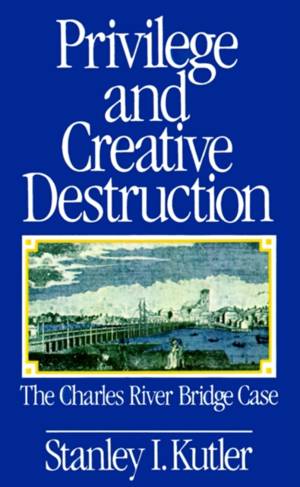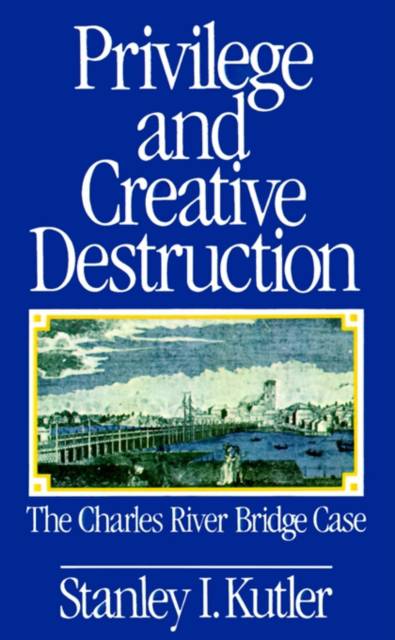
- Afhalen na 1 uur in een winkel met voorraad
- In januari gratis thuislevering in België
- Ruim aanbod met 7 miljoen producten
- Afhalen na 1 uur in een winkel met voorraad
- In januari gratis thuislevering in België
- Ruim aanbod met 7 miljoen producten
Privilege and Creative Destruction
The Charles River Bridge Case
Stanley I KutlerOmschrijving
In this now-classic work in legal and constitutional theory, Stanley I. Kutler examines one of the Supreme Court's most celebrated decisions. In 1837, the Court rules that the state of Massachusetts had the right to erect a free bridge over the Charles River even though it had previously chartered a privately owned toll bridge at the same location. The Court's decision fostered the idea of "creative destruction," a process that encourages new forms of property at the expense of older ones. Exploring the origins, context, and impact of this decision, Kutler integrates traditional American constitutional history with the "new legal history: that emphasizes the social and economic bases of legal change.
Specificaties
Betrokkenen
- Auteur(s):
- Uitgeverij:
Inhoud
- Aantal bladzijden:
- 208
- Taal:
- Engels
Eigenschappen
- Productcode (EAN):
- 9780801839832
- Verschijningsdatum:
- 1/12/1989
- Uitvoering:
- Paperback
- Formaat:
- Trade paperback (VS)
- Afmetingen:
- 141 mm x 210 mm
- Gewicht:
- 267 g

Alleen bij Standaard Boekhandel
Beoordelingen
We publiceren alleen reviews die voldoen aan de voorwaarden voor reviews. Bekijk onze voorwaarden voor reviews.









